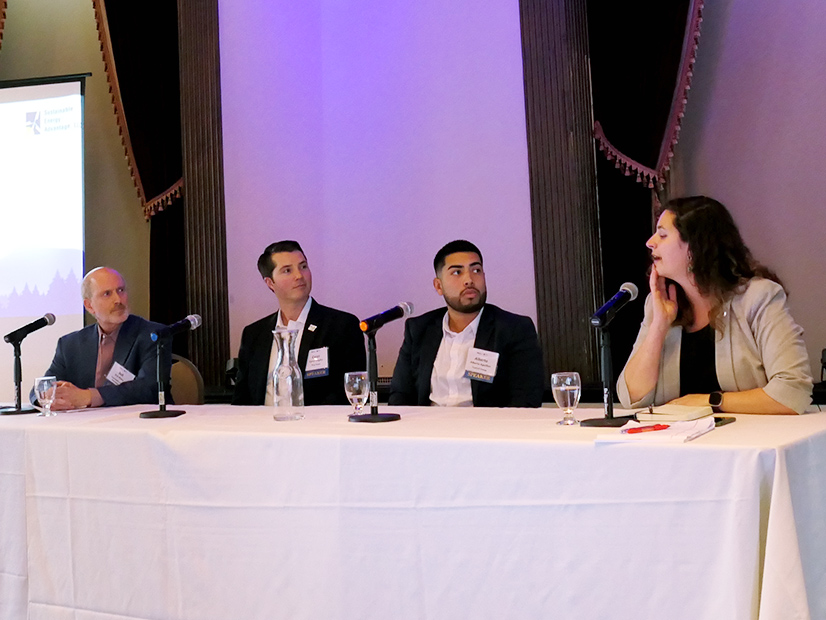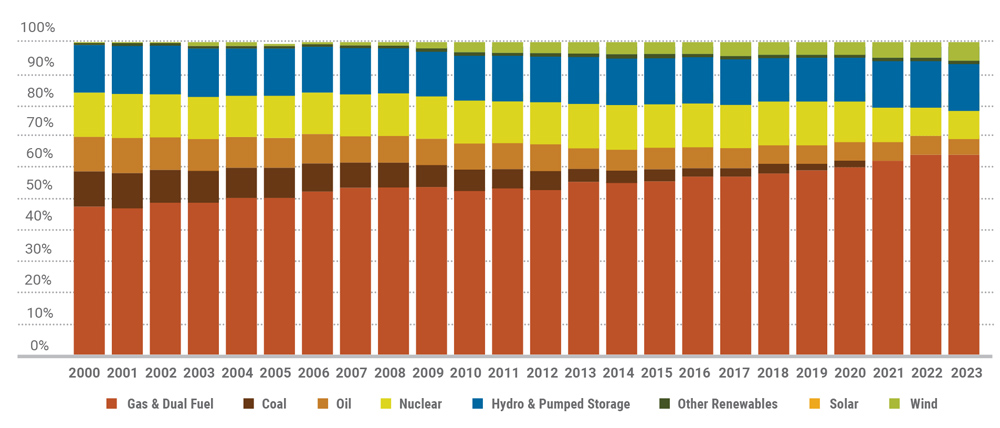The California Public Utilities Commission on Thursday awarded Pacific Gas and Electric more than $1.1 billion in wildfire mitigation costs despite opposition from its own Public Advocates Office and consumer groups.
The commission granted PG&E 85% of the money it requested to be collected from ratepayers over the next year. The order, written by CPUC Administrative Law Judge Camille Watts-Zagha, was approved unanimously without discussion, along with rest of the Thursday voting meeting’s lengthy consent agenda.
The public advocates said the decision was arbitrary and capricious and that the commission committed legal errors by awarding PG&E its requested costs without determining their reasonableness first, as required by state law.
It is “unprecedented to grant a utility 85% of its recovery request in interim rates without a reasonableness review,” the advocates said. “Previously, the commission has explained in detail why a grant of 55% in interim rates was equitable. Here, the commission makes no attempt to demonstrate why 85% is reasonable.”
The office said the CPUC should award PG&E a maximum of 55% of its nearly $1.4 billion request, or $770 million.
Consumer groups The Utility Reform Network (TURN) and Direct Access Customer Coalition (DACC) urged the CPUC to reject PG&E’s request entirely.
“The proposed decision would authorize interim rate recovery for over $1 billion of costs PG&E has incurred but that have not yet been determined to be reasonable,” TURN said. “In the past, and as recently as last year, the commission has limited such rate relief to extraordinary circumstances.
“Rather than continue this practice, the proposed decision would grant PG&E the full extent of the requested relief, based on little more than general assertions regarding the utility’s financial condition and the likelihood that requiring customers to prepay $1 billion could reduce interest costs by approximately $30 million,” TURN said. “In doing so, it would downplay if not ignore the repeated and consistent [upbeat] statements PG&E has made to the financial community regarding its current financial condition.”
The utility’s credit rating remained below investment grade at the end of 2022, but its outlook has since improved as its stock price has been edging upward.
PG&E contended that interim rate recovery (IRR) would improve its credit rating and benefit customers in the long run with lower corporate borrowing costs.
“The [proposed decision] correctly grants IRR because it will provide direct interest savings of approximately $30 million to PG&E customers,” the utility said. “The IRR will also improve PG&E’s financial condition and credit metrics, which could yield additional customer savings and benefits through PG&E’s improved access to capital.”
Nearly $850 million of the award will cover PG&E’s vegetation management activities to prevent wildfires.
A tree falling on a PG&E distribution line caused the nearly 1 million-acre Dixie Fire, which burned through five counties in the Sierra Nevada foothills from July to October 2021. The Zogg Fire, which killed four people in September 2020, was also ignited by a downed tree on a PG&E line, the California Department of Forestry and Fire Protection (Cal Fire) found.
Branches and trees striking PG&E lines were among the causes of a spate of fires in October 2017 that ravaged Northern California wine country, Cal Fire determined.
The decision said that the reasonableness of PG&E’s costs would be reviewed later.
“PG&E is required to refund, with interest, any excess amount it collects in comparison to the commission’s final determination on the amount reasonably incurred,” it said. “Nothing in this decision shall be construed to relieve PG&E of the burden of proving that all costs it seeks to recover in this proceeding are just and reasonable.”
The decision agreed with PG&E that “interim cost recovery confers benefits of cost savings and risk minimization to the ratepayers and utility sufficient to justify departure from the commission’s statutory duty to put costs into rates after the commission determines the costs reasonable. Based on the totality of circumstances, commencing collection of costs through rates now is consistent with the commission’s constitutional and statutory duty to review and approve rate increases.”
Spread out over PG&E’s 5.5 million customers, the rate hike is expected to add $8.67 to the utility bills of typical consumers, whose average bills now range between $111 and $180/month.


